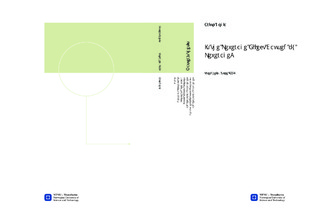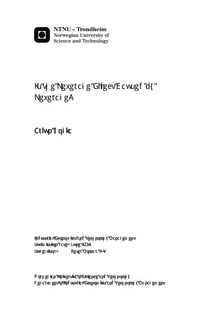| dc.contributor.advisor | Molnar, Peter | nb_NO |
| dc.contributor.author | Gogia, Arjun | nb_NO |
| dc.date.accessioned | 2014-12-19T14:28:37Z | |
| dc.date.available | 2014-12-19T14:28:37Z | |
| dc.date.created | 2013-06-16 | nb_NO |
| dc.date.issued | 2012 | nb_NO |
| dc.identifier | 629186 | nb_NO |
| dc.identifier | ntnudaim:7384 | nb_NO |
| dc.identifier.uri | http://hdl.handle.net/11250/266272 | |
| dc.description.abstract | Asymmetric equity volatility is crucial for many financial applications and has in the last few decades become a focus and an important research area in empirical studies. The term leverage effect refers to the observed relationship between returns and volatility. The volatility is known to increase when the market and the stock prices experience a fall. One possible explanation for this phenomenon is based on financial leverage, where a fall in the market value of a firm’s equity makes a firm more levered, resulting in an increase in the stock return volatility. The main objective in this study is to examine if the leverage effect hypothesis can explain the asymmetric volatility of stocks on the Norwegian stock exchange. Linear regressions have been performed in the empirical tests, where stock returns, market returns and changes in leverage are the explanatory variables. The study has used three different volatility estimators to account for robustness in the analysis. The main assumption in this empirical research is that the measured leverage is calculated from the book values of debt and not from the market value of debt. The findings determine that asymmetric equity volatility exists on the Norwegian stock exchange. The magnitude of the leverage effect is substantially higher when the stock prices are declining and when the market is experiencing a downfall. The results show that market returns has the highest significance level and the greatest explanatory power, which implies that market returns have a bigger impact on volatility than individual stock returns. Since market returns is the dominant variable when determining asymmetric volatility and the fact that leverage effect diminishes over time, it is clear that the leverage effect is not only caused by leverage. The results suggests that the leverage effect hypothesis is mainly a down market effect, since the effect is much stronger when the market is falling. | nb_NO |
| dc.language | eng | nb_NO |
| dc.publisher | Institutt for industriell økonomi og teknologiledelse | nb_NO |
| dc.title | Is the Leverage Effect Caused by Leverage? | nb_NO |
| dc.type | Master thesis | nb_NO |
| dc.source.pagenumber | 58 | nb_NO |
| dc.contributor.department | Norges teknisk-naturvitenskapelige universitet, Fakultet for samfunnsvitenskap og teknologiledelse, Institutt for industriell økonomi og teknologiledelse | nb_NO |

